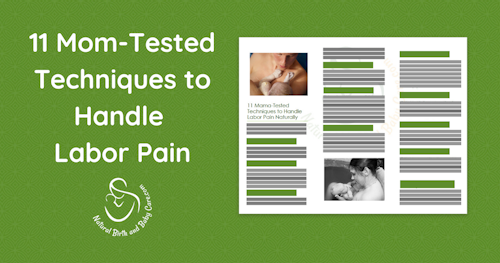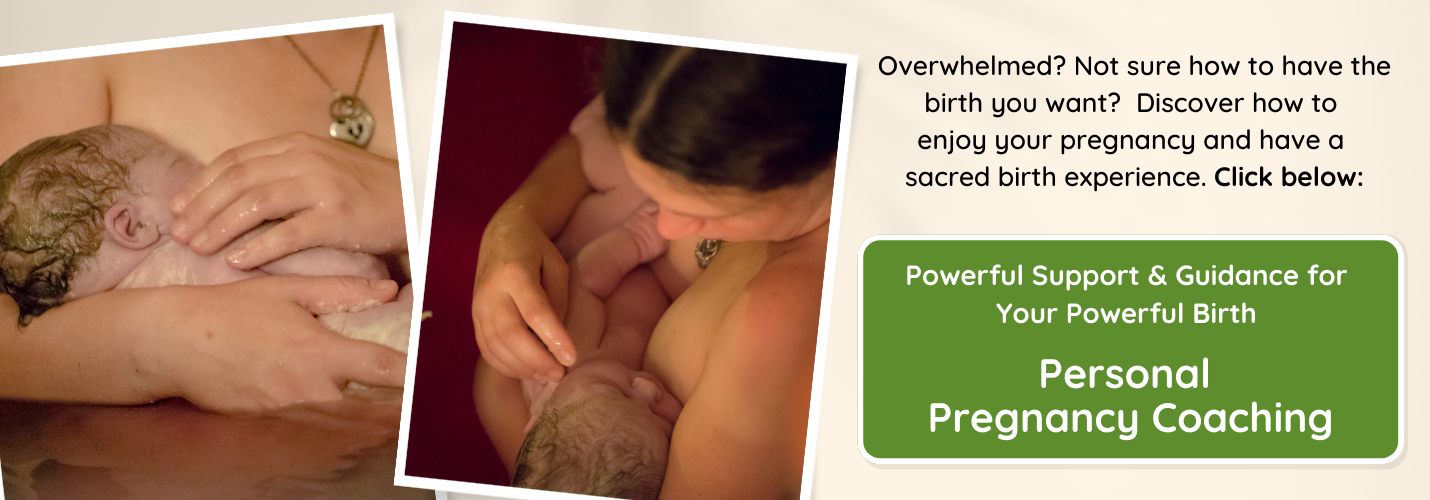When I was younger I was so prone to meltdowns at the doctor’s office that during a calm visit the nurse told my mother, “her angel’s halo is being held on by her devil’s horns.”
Like many autistic children – and adults – I have always struggled with communicating my needs in doctor’s offices. Pregnancy and all of its hormones only made that more difficult for me and many other autistic women.
How can you choose the right care provider and communicate your needs for yourself and your unborn child effectively? This article looks at the challenges that come with prenatal care when you’re autistic – and how to overcome those so you have trustworthy relationships and resources.
Find a care team aligned with your values helps you own more of your pregnancy and birth experience, something especially important to mamas on the spectrum.
Why Autistic Women Struggle to Communicate with Care Providers
Autistic women (and autistic men) often struggle to communicate with care providers for multiple reasons. Women on the spectrum perceive the world differently, and thus communicate differently.
You may use hand gestures or facial expressions in unexpected ways. You also likely have different sensory experiences than neurotypical mothers. Communicating about these may feel difficult or even alien to a care provider.
Sehinson and Neff (1) discuss a concept called the “double empathy problem” that occurs when each individual tries to empathize with the other’s feelings, but ultimately lacks meaningful communication.
This can create a barrier to addressing both physical and mental health concerns.
Most maternity care providers (midwives and doctors) lack training to work with neurodiverse women. They may dismiss things like increased sensory sensitivities. And they may miss warning signs or problems because autistic women often perceive pain or physical changes differently.
(NOTE: Want a Perfect Birth Plan Template? Use this template and step-by-step videos to write a birth plan that gets your birth team on your side for a beautiful birth experience! Get the birth plan kit here.)
Sensory Issues and How They Impact Care
It’s important to address sensory issues because they’re such a huge part of an autistic woman’s pregnancy and birth experience.
Almost all pregnant women experience an increased sensitivity to tastes and especially to smells. But these sensitivities are worse for neurodiverse moms – and you might experience other issues, too.
Many autistic mothers become more sensitive to touch, sound, and light. This can make going to the doctor or midwife’s office overwhelming and going to the hospital for birth can feel unbearable.
The bright lights, loud noises, and bustling activity of doctor’s offices and especially the hospital is overwhelming. For pregnant autistic women, this sensory overload can increase stress and anxiety, making it difficult to focus on conversations with your care provider.
The overwhelming sensory input can lead to difficulties in processing information, articulating concerns, and responding to questions. As a result, healthcare providers may miss or misunderstand important details about your health and pregnancy.
How to Choose a Care Provider
Give the real challenges autistic mamas face, how can you choose the right care provider? Just as for any mama, the first question is really where you want to have your baby.
A good birth can happen in any setting, but it’s important to consider different places of birth:
You can have a good birth in any location, but there are very real things to ponder as an autistic woman. Many autistic women are analytical and science-minded, so initially a hospital may look like the best choice.
But other women focus on the calmness and control offered by a home birth, as well as the strong evidence for home birth safety for low-risk women and babies.(2)
Do some research into these options, but consider what appeals to you right now. This decision matters because your care provider changes based on where you give birth.
The midwifery model of care is a good choice for an autistic mother because longer appointments and a closer relationship with your midwife can help you get the respectful, informed care you need throughout your pregnancy.
How to Communicate Well With Care Providers
The communication mismatch between neurotypical and neurodiverse people can be difficult to navigate, but these tips will help you:
(NOTE:Want Labor Pain Techniques that REALLY Work? Get these 11 mom-tested techniques for handling contractions from start to finish Get the mom-tested natural labor techniques here.)
Have a Guide and an Advocate
Autistic people often benefit from 1:1 support as they navigate in the neurotypical world. While this may seem like a luxury, you’re more likely to get this support during pregnancy. A pregnancy coach and doula are both able to provide high levels of support.
Doulas typically do 2-3 appointments during pregnancy, then provide continuous support throughout your labor. A doula is not a medical provider, but a trained labor support person. You can talk with your doula and see if she’s able to accompany you to prenatal appointments as needed, too.
I had a doula come with me to an appointment with an obstetrician I needed to see for extra testing during one of my pregnancies. I was upset and overwhelmed, and her presence helped me advocate for myself to get the care I needed and get back to my regular midwifery care appointments!
A pregnancy coach may or may not be local to you, but provides continuous, ongoing support from the time you hire her into your postpartum with your baby. She can answer any questions you have, research issues you’re having, and help you develop plans for handling everyday and difficult situations.
As a pregnancy coach, I often support women who have special needs during pregnancy, and offer research and support before and after all prenatal appointments. I can also be present at appointments via Zoom, Facetime, or other video apps if needed. This has helped autistic clients who want a high level of daily support.
Your partner, a parent, or friend can also come with you to appointments for support.
Learn About Pregnancy and Birth on Your Own Terms
While your midwife or doctor can share information about pregnancy and birth, you can also discover much more through your own research.
Often the advice you get at your doctor’s office – and even your midwife’s office – is behind on the evidence. Or there’s an implication that healthy pregnancy is all about luck, when the evidence shows there’s a lot you can do to keep your pregnancy low-risk.
While it can feel overwhelming to juggle everything for a healthy pregnancy and a healthy baby, there’s so much that’s in your control. Future articles in this series cover how to use the strengths you have as an autistic woman to create routines and rituals that not only comfort you, but help prevent burnout while growing a healthy baby.
Once you understand how pregnancy works and how to have a safe, smooth birth, you can have a healthy child and feel more confident about motherhood and the adventures you’ll have!
Want help with the research and personalized support for your neurodiverse pregnancy? Click here to discover how you can get bespoke pregnancy support as you navigate this journey!
Want personal support to stay healthy and low-risk through your pregnancy? Longing for authentic guidance to make your sacred birth dream a reality?
Click to book a pregnancy and birth visioning call with me. We’ll talk about your hopes and dreams and explore if my pregnancy coaching program is a good fit for you.
Trending Products

















